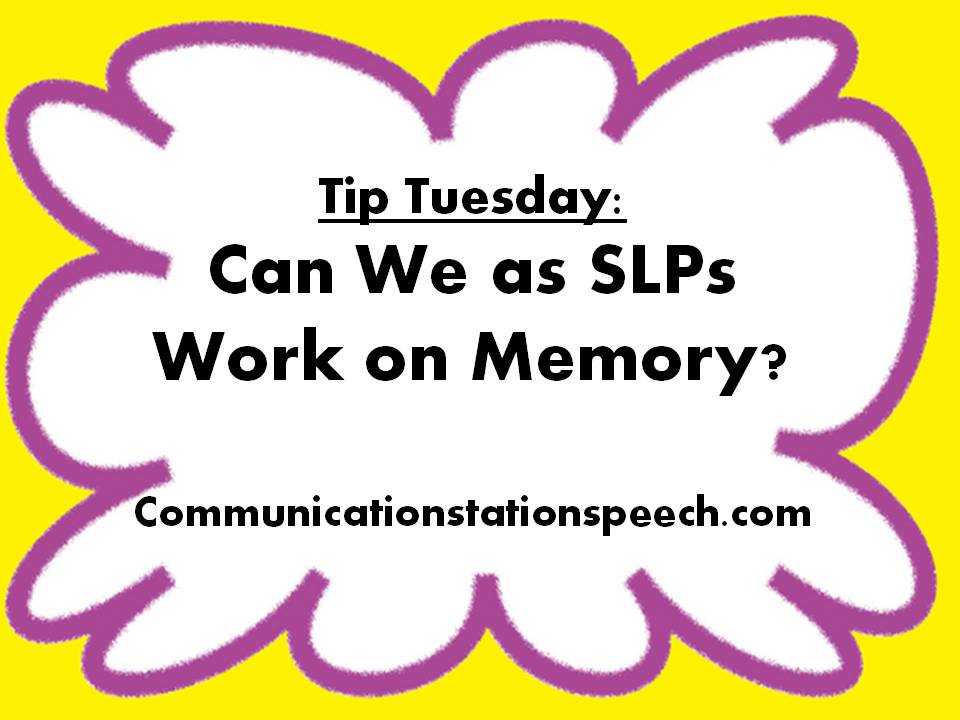Tip Tuesday: Can We as SLPs work on Memory?
Ok I’ve read several threads on speech therapy pages discussing how our scope of practice as SLPs do not “cover” working on memory skills. “It’s a psychologist and the special educator’s job. It’s not my problem. Dismiss.”
Hold on there buckaroos! I am going to beg to differ here for a few reasons.
We have all seen the effects poor working memory and memory recall have on various areas of communication including but not limited to: auditory comprehension, reading comprehension, recall of details, sequencing and retelling of narratives, etc. It makes sense doesn’t it? A child with poor memory skills may also have some type of language deficit. In fact, it is rare that I have worked with a student/client who has memory issues that did not have a co-existing or underlying language deficit. So why are we so ready to “give up” on these kiddos when we still have work to do? If our students cannot recall what we have worked on from session to session is this a reason for dismissal? Or should we find a way to aid in our students’ recall?
Neuroscience tells us that progress, although slow, can be make in patients years after a diagnosis of TBI, dementia, or stroke but for some reason we think we can’t teach a child with a cognitive or learning disability? OF COURSE WE CAN!
I very rarely get fired up about speech therapy topics but I never want to see SLPs saying “I can’t do anything about this.” or “It’s not my job.” It IS our job to assess and treat communication deficits/disorders in the best way we know how. So if something I am doing is not working, if a student has been working on the same goals for years (which shouldn’t be to begin with but we’ve all seen IEPs like this), if my student does not seem to be making progress on the goals I am targeting, is this telling me the student needs to be dismissed? Is it telling me that the problem with progress is the student’s problem and not mine? Or is it telling me, as a clinician, researcher, assessor, and therapist, that I need to TRY SOMETHING NEW? That it’s time to think outside of the box? I think you know what answer I’m going with here.
Why am I so adamant about this topic? Maybe it’s because I’ve seen how much progress can be made in children with working memory issues. Maybe it’s because when all others gave up on a student, I found myself being the only advocate the child had. Maybe it’s because as a mother, I would never want anyone to give up on my child. Looking on the outside, I think it’s probably all three reasons.
I know what some of you are thinking. “So tell me, oh wise Maria of Communication Station, if you are so brilliant, what can I do to work on communication with these students with severe memory issues?”
Well first let me state that I don’t believe there is any one size fits all. I think most therapy plans will be thrown out over and over again as you trial numerous techniques to see which will work for your clients. But I can give you some of the basic techniques I have used in the past which have resulted in positive effects on both receptive and expressive language skills as well as working memory skills (when tested and re-tested by psychologists). So what can be done actually depends on what deficits your client is presenting.
Over the next several weeks, I will share with you some activities that I have done that successfully resulted in improvements in overall communication and memory skills. So stay tuned!


No comments yet.